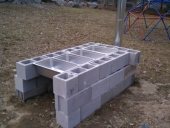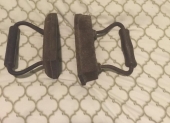
 4
4




Invasive plants are Earth's way of insisting we notice her medicines. Stephen Herrod Buhner
Everyone learns what works by learning what doesn't work. Stephen Herrod Buhner
 8
8












 11
11




r ranson wrote:If cast iron, a chisel (joking).
- Tim's Homestead Journal - Purchase a copy of Building a Better World in Your Backyard - Purchase 6 Decks of Permaculture Cards -
- Purchase 12x Decks of Permaculture Cards - Purchase a copy of the SKIP Book - Purchase 12x copies of Building a Better World in your Backyard
 3
3




“The most important decision we make is whether we believe we live in a friendly or hostile universe.”― Albert Einstein
 4
4




One can never be too kind to oneself or others.
 13
13




 6
6




Life's too short, eat desert first! [Source of quote unknown]
You have to be warped to weave [ditto!]
 7
7




![Filename: stainless-brush.jpg
Description: [Thumbnail for stainless-brush.jpg]](/t/280541/a/265702/stainless-brush.jpg)
How permies.com works
What is a Mother Tree ?
 6
6




 3
3




Invasive plants are Earth's way of insisting we notice her medicines. Stephen Herrod Buhner
Everyone learns what works by learning what doesn't work. Stephen Herrod Buhner
 6
6




 5
5




"Ah, but a man's reach should exceed his grasp,
Or what's a heaven for?"
Andrea del Sarto by Robert Browning
 5
5




 4
4




Try simmering a mix of water and baking soda (or vinegar) in the pan for 10–15 minutes, then let it cool and scrape with a wooden or plastic spatula. Bar Keepers Friend or a paste of baking soda and dish soap can also help lift stubborn residue.Anne Miller wrote:I fix some scalloped potatoes on the top of the stove and the bottom scorched not matter how many times I stirred it.
How do you get scorched food off the bottom of a pan?
I have been soaking and scrubbing for several days without much results.

| I agree. Here's the link: http://stoves2.com |





